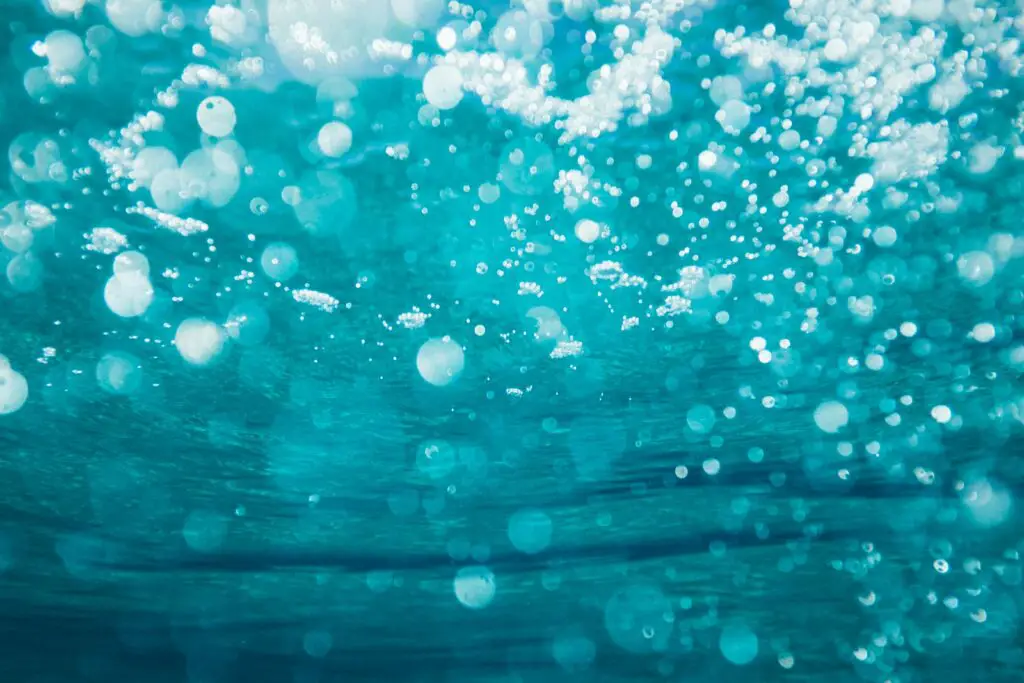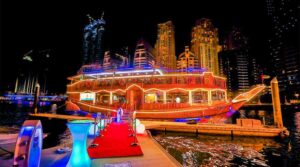Freshwater, a precious renewable resource, is highly valued due to its limited availability. It accounts for only 2.5% of the water on earth, and merely 0.77% of it is readily accessible.
Countries in the Gulf region, including the United Arab Emirates, face significant gaps between water supply and demand.
The area’s rapid development and population growth further exacerbate the challenge.
It is, therefore, not surprising that over 65% of the world’s desalination sector operates in the Gulf countries, with the UAE accounting for 26% of global desalination capacity.
Dubai, the UAE’s banking, commercial, and tourist hub, faces arid climatic conditions, with average summer temperatures reaching 107 degrees Fahrenheit.
As a result, the region receives limited rainfall, and over 75% of the annual rain is lost due to evapotranspiration, with only 10% recharging the aquifers.
This low recharge rate and high ground abreaction lead to saline and dry aquifers. Consequently, Dubai has had to seek alternative freshwater sources to sustain its rapid urbanization and population growth.
Water Sources in Dubai
Dubai’s average water consumption rate of 145 gallons per person is among the highest in the world.
Rapid urbanization, the arid climate, and population growth drive this trend.
Desalinated seawater from the Arabian Gulf is Dubai’s primary source of freshwater, providing 89.9% of the city’s water supply needs.
The remaining water demand is primarily met by underground water.
The residential sector is the largest consumer of water, accounting for 60.6% of the total water consumption, followed by the commercial sector at 24.9% and the industrial sector at 3.7%.
Desalination Plants
The Dubai Electricity and Water Authority (DEWA) operates the desalination plants responsible for producing fresh water from seawater.
The seawater is usually collected through intakes located in the Arabian Gulf, and water used to cool Aluminium smelters in Jebel Ali is also supplied to the DEWA desalination plant.
The energy needed for the desalination process is generated using fuels such as natural gas and diesel.
The desalinated water is then pumped into the water supply network for domestic consumption.
Tap water in Dubai is generally considered safe for drinking, but it has an aftertaste that varies depending on the area.
Despite its benefits, desalination has several negative impacts on the marine environment due to the discharge of chemicals and concentrate.
The reliability of desalinated water in urban areas has been questioned because of the red tide effect that affects the Arabian Gulf, leading to water quality issues.
Treated Wastewater
Dubai considers treated water an essential option to address its current water demands.
To ensure adequate supply, the government has significantly invested in upgrading its wastewater treatment facilities and enhancing its urban sewerage networks.
Both full and partial wastewater treatment processes are usually carried out, irrespective of their ultimate use.
Modern treatment plants in the United Arab Emirates can perform advanced and tertiary water treatment.
The treated water generated from these facilities is predominantly utilized in the landscaping of highways and the irrigation of gardens.
Groundwater
Dubai heavily relies on groundwater as a primary source of natural water, which is crucial to the United Arab Emirates.
The country’s estimated underground water resources are about 22,601 billion cubic feet, but only 706 billion cubic feet constitute freshwater.
Groundwater resources are categorized into non-renewable, such as deep aquifers, and renewable resources, including shallow aquifers.
In recent years, efforts have been made to minimize groundwater abstraction, leading to significant improvements in the condition of the country’s aquifers.
The government has also implemented active monitoring and regulatory programs for sustainable groundwater management.
Surface Water
Dubai has negligible surface water, mainly in ponds and floodwater.
The region is situated in a dry belt, resulting in limited rainfall, and the little floodwater available typically seeps into the ground.
There is a pressing need to harvest and store surface water, as replenishing groundwater in renewable aquifers from surface water could significantly enhance water resources.
To address this issue, the United Arab Emirates is at the forefront of implementing artificial recharge groundwater storage methods.
This storage method is considered more dependable and secure than tanks and industrial storage facilities.
Can Dubai Run Out of Water?
The potential consequences of wasting water from taps in the UAE are significant for both present and future generations.
By 2030, no groundwater may be available for distribution through taps.
Is The Water Drinkable in Dubai?
Drinking tap water in Dubai is generally safe, provided that appropriate precautions are taken to mitigate any potential risks associated with storing the water in household tanks.
Boiling tap water is a common practice in Dubai to ensure its safety before consumption.
What Is the Main Source of Water in the UAE?
The United Arab Emirates has two main sources of water: desalinated seawater and groundwater. Desalinated seawater is the primary source of drinking water across the Emirate.
It is produced through desalination at various plants owned and operated by the Dubai Electricity and Water Authority (DEWA).
Can You Swim on Dubai Beaches?
The prestigious blue flag beach status has been recently awarded to Jumeirah Beach and Al Mamzar Park in Dubai.
Despite the calm appearance of the beaches, swimmers need to be aware of the strong currents that are commonly present.
Therefore, it is recommended to exercise caution and take appropriate safety measures when swimming.
Final Thoughts
The future demand for water in Dubai is expected to increase due to population growth and industrial expansion.
The rise in demand will be driven by the household, commercial, and industrial sectors. However, the agricultural industry is expected to maintain a constant demand for water due to the lack of arable lands and decreasing groundwater resources.
Innovation in the desalination industry is anticipated to increase the water supply at an affordable cost.
The International Centre for Biosaline Agriculture, located in Dubai, is researching salt-tolerant crops that use brackish water instead of fresh groundwater.
This could help to reduce the excessive use of freshwater and protect the already declining groundwater resources.
Therefore, the government is exploring various measures to increase water sustainability, such as water reuse, water conservation, and research on alternative water sources.
These efforts aim to ensure a stable water supply in Dubai, especially in the face of the anticipated demand increase.










